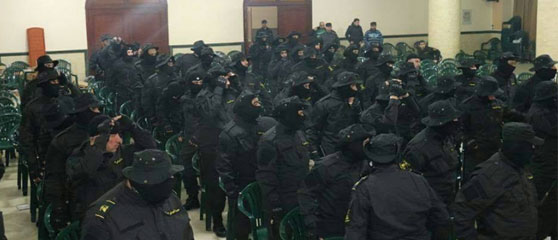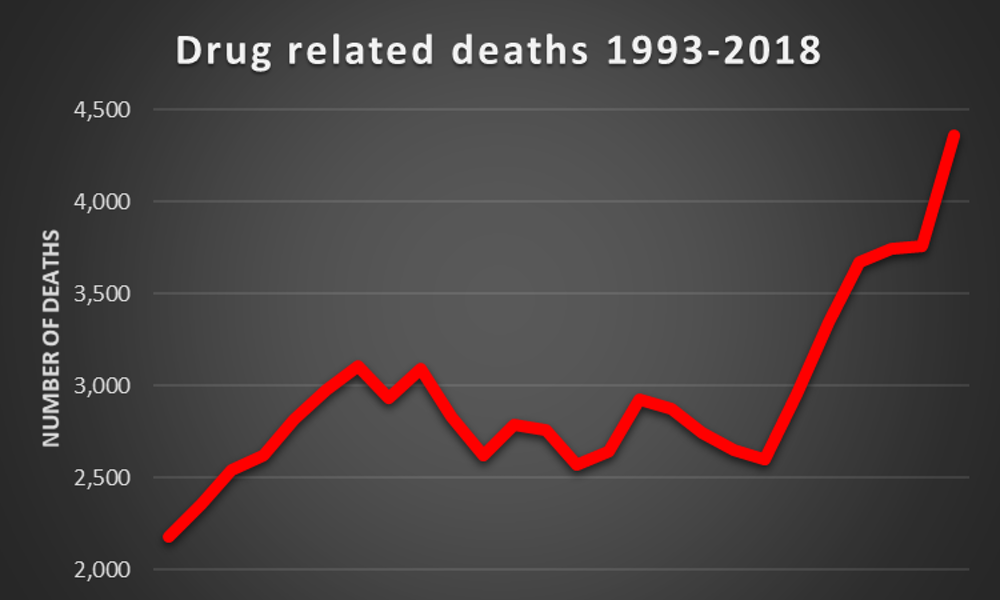Dozens of Hezbollah members have taken part in “spontaneous” drug raids in a southern Beirut suburb, but their reasons for doing so are unclear.
Hezbollah is a political party and militant group which maintains significant influence in certain parts of Lebanon, including southern Beirut. It has been referred to as a “state within a state” as it provides social services and amenities – including “policing and judicial activities” – to people in areas it controls. However, it has also been deemed a “terrorist organisation” by several countries, including the US, due to its military wing’s conflict with neighbouring Israel – which began during the Israeli occupation of South Lebanon in the 1980s.
On the night of March 31, dozens of armed and masked Hezbollah members in the Beirut municipality of Burj al-Barajneh launched a crackdown on people involved with drugs. According to regional press, the men, dressed in all black, raided warehouses where drugs were being stored, and held people who were allegedly selling or using drugs.
Ali Ammar, a Hezbollah MP in the Lebanese Parliament, claimed that the move was a "spontaneous practice … [and] display of power" that was undertaken without permission from Hezbollah’s chain of command, Al-Arabiya reports.
This raises the question of why these individuals took part in the raids, as they were supposedly not approved by either the national government or Hezbollah; they were vigilante acts committed without legal authority.
Some Burj al-Barajneh residents claim that the drug raids were welcomed by the community, and that they may have been undertaken as a response to locals’ frustration with people who sell drugs.
"I wish it happened before," said Hussein Shmeis, a local shopkeeper, "Maybe it was a message for the drug traders – telling them to stop going so far, because [Hezbollah] are on the ground like the Army".
Another local man claimed that local residents had directly petitioned Hezbollah members to clamp down on drug dealing and associated crimes because "the people in Burj al-Barajneh have had enough", the Daily Star, Lebanon’s main English-language newspaper, reports.
While it may indeed be the case that local residents called on Hezbollah members to crackdown on the illicit drug trade, the raids may also have been an act of defiance against the Lebanese state – with which Hezbollah has had an unstable relationship.
The move may have been a message to the national government from certain Hezbollah members; a demonstration that they have the power and self-designated authority to take serious policy implementation matters into their own hands. Simultaneously, the Hezbollah members who participated in the raid may have been attempting to instil a notion amongst the public that Hezbollah could succeed where the state fails – as some Burj al-Barajneh residents perceive the state to have been ineffective at addressing drug trafficking,
Indeed, the move prompted anger from state authorities. The Interior Minister, Nouhad Machnouk, denounced the raids – describing them as "a slap in the face of the new presidential term and a challenge to the logic of the state" in a tweet.
"We will take the measures that the law imposes to prevent all ideas of self-security, which are rejected by all Lebanese," he added.
There may be a more clandestine reason for why Hezbollah members took part in the raids; rather than cracking down on drugs in a supposed bid to prevent drug use, the raids may have been part of a wider turf war over the sale of drugs.
Hezbollah has been accused by various US officials, including the Drug Enforcement Administration, of involvement with the illegal trade of fenethylline – commonly referred to by brand-name Captagon.
Additionally, there has been a surge in cannabis production in Lebanon since the outbreak of the civil war in neighbouring Syria, partly due to overstretched security forces’ lack of resources. While there is no definitive evidence that Hezbollah is cultivating cannabis, the prime region for the drug’s production is the fertile Bekaa Valley, a Hezbollah stronghold.
Hezbollah members’ drug crackdown may, therefore, have been part of a power play between rival trafficking groups, rather than the anti-narcotic measure it was presented as. Thus far, there are no reports of what happened to the seized drugs, nor the fate of the people captured in the raids
It remains unclear why members of this secretive group undertook drug raids in March, but it is worth noting that there may be more to the Hezbollah members' actions than a desire for drug prohibition.


